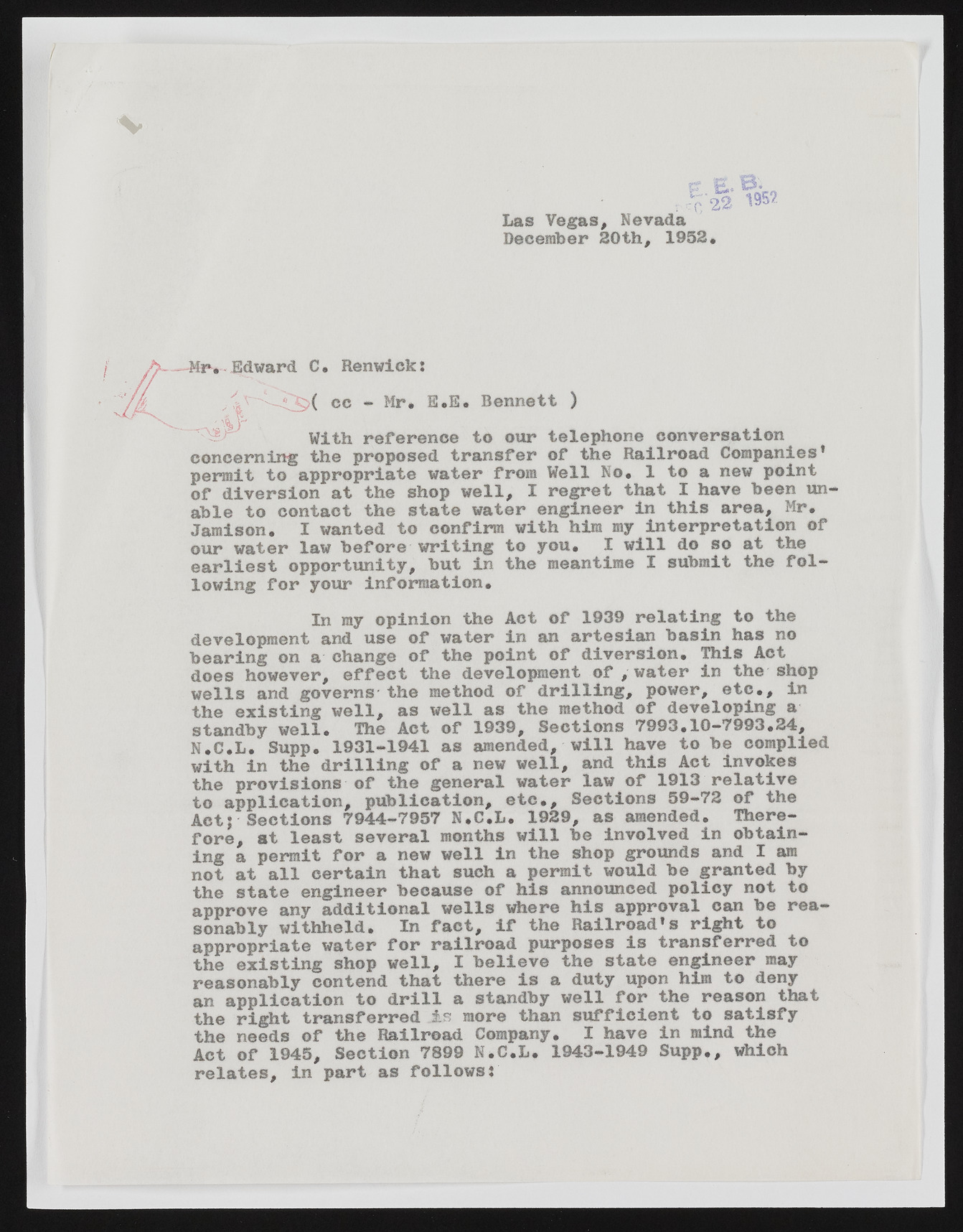Copyright & Fair-use Agreement
UNLV Special Collections provides copies of materials to facilitate private study, scholarship, or research. Material not in the public domain may be used according to fair use of copyrighted materials as defined by copyright law. Please cite us.
Please note that UNLV may not own the copyright to these materials and cannot provide permission to publish or distribute materials when UNLV is not the copyright holder. The user is solely responsible for determining the copyright status of materials and obtaining permission to use material from the copyright holder and for determining whether any permissions relating to any other rights are necessary for the intended use, and for obtaining all required permissions beyond that allowed by fair use.
Read more about our reproduction and use policy.
I agree.Information
Digital ID
Permalink
Details
More Info
Rights
Digital Provenance
Publisher
Transcription
1 ^ 2 2 Las Vegas, Nevada December 20th, 1952* Mr, Bdward C • Renwick: {^( co - Mr, E.E. Bennett ) With reference to our telephone conversation concerning the proposed transfer of the Railroad Companies* permit to appropriate water from Well No, 1 to a new point of diversion at the shop well, I regret that I have been unable to contact the state water engineer in this area, Mr. Jamison. I wanted to confirm with him my interpretation of our water law before writing to you. I will do so at the earliest opportunity, but in the meantime I submit the following for your information. In my opinion the Act of 1939 relating to the development and use of water in an artesian basin has no bearing on a change of the point of diversion. This Act does however, effect the development of , water in the shop wells and governs the method of drilling, power, etc., in the existing well, as well as the method of developing a standby well. The Act of 1939, Sections 7993.10-7993.24, N.C.L. Supp. 1931-1941 as amended, will have to be complied with in the drilling of a new well, and this Act invokes the provisions of the general water law of 1913 relative to application, publication, etc., Sections 59-72 of the Act; Sections 7944-7957 N.C.L. 1929, as amended. Therefore, at least several months will be involved in obtaining a permit for a new well in the shop grounds and I am not at all certain that such a permit would be granted by the state engineer because of his announced policy not to approve any additional wells where his approval can be reasonably withheld. In fact, if the Railroad*s right to appropriate water for railroad purposes is transferred to the existing shop well, I believe the state engineer may reasonably contend that there is a duty upon him to deny an application to drill a standby well for the reason that the right transferred As more than sufficient to satisfy the needs of the Railroad Company. I have in mind the Act of 1945, Section 7899 N.C.L. 1943-1949 Supp., which relates, in part as follows:

